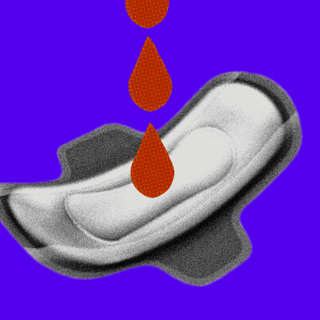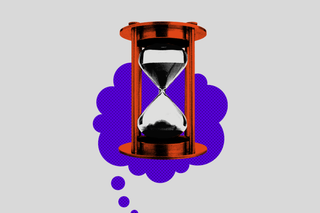
How Some People Feel Nostalgic For Things They Haven’t Yet Lost
Anticipatory nostalgia is a cocktail of emotions that prompts us to imagine the present through the lens of the future.

Nostalgia — a rather layered emotion involving a bittersweet longing for the past — is a feeling most of us are familiar with. Sometimes, it hits us out of nowhere; other times, we go looking for it. Novelist Michael Chabon wrote in The New Yorker in 2017, vividly describing the experience of nostalgia: “You have placed a phone call directly into the past and heard an answering voice… Nostalgia, most truly and most meaningfully, is the emotional experience — always momentary, always fragile — of having what you lost or never had, of seeing what you missed seeing, of meeting the people you missed knowing, of sipping coffee in the storied cafés that are now hot-yoga studios. It’s the feeling that overcomes you when some minor vanished beauty of the world is momentarily restored.”
Interestingly, there’s a version of nostalgia that doesn’t involve reminiscing things gone by, but mourning one’s present, knowing it won’t last forever.
As a college student, every time I heard the late Manna Dey’s Coffee House’r Shei Adda Ta — a song about a group of friends who went their own separate ways, often losing touch with one another, as the years went by — I’d find myself moved to tears, thinking about how I’d miss hanging out with my friends in future. It made me miss people who were, at that moment, less than 10 feet away from me and just a door-knock away. Yet, I was missing them, channeling the longing I expected the future version of myself to feel, many years later.
Experts call this “anticipatory nostalgia” — a fascinating cocktail of emotions that prompts us to imagine the present through the lens of the future, causing us to perceive the present as the past, as we project our current emotions onto anticipated moments from the future. A fairly ubiquitous experience of anticipatory nostalgia is “mondread,” or spending one’s Sunday dreading the fact that it’ll be gone the next day, to be replaced by the blues of yet another work week.
If that sounds like an unnecessarily convoluted plot of a movie involving time travel — like Tenet, if you will — that’s because it is, indeed, a complex state of mind. It flows from the anxiety preying on the happiness one is experiencing at present, quickly flipping it into a heady mix that prevents one from cherishing that very happiness — “trigger[ing even more] anxiety and preemptive sadness,” as Healthline notes.
Related on The Swaddle:
How Nostalgia Can Act as a Pain‑Reliever
“Paradoxically, the desire to hold on to the present might jeopardize full engagement in it. Envisioning the future can bring the sadness of missing the present prematurely and anxiety about what will come next,” Krystine Batcho, professor of psychology at LeMoyne College in Syracuse, wrote. “[P]eople prone to anticipatory nostalgia find it harder to enjoy the present and are more likely to distance themselves mentally or emotionally to avoid future hurt when it ends in both challenging and happy circumstances. Such defensive distancing can deprive a person of full enjoyment in the present.”
This is, basically, a way of saying that worrying about tomorrow can rob one of the joys of today. It’s easier said than done, though: people don’t, generally, choose to worry over enjoying a moment. Batcho, who is deemed an expert on the subject of nostalgia, believes “people who have a greater need to belong and less assurance of social acceptance are more prone to anticipatory nostalgia.”
“‘I am such a lucky person,’ I thought. I am currently leading a traveling life, living in a camper van, which I can combine well with my work as a writer… And then I thought: ‘I have to really enjoy this a little bit more than usual as we leave tomorrow’. I’d almost forgotten about that… Boom, my happy feeling evaporated, and gave way to a premature sense of loss for this place that I love so much. Feeling kind of sad, I walked on — preoccupied with the imminent departure,” journalist Hedwig Wiebes wrote in Flow.
But despite the sense of gloom it can induce, anticipatory nostalgia isn’t all that bad; it can teach us to value the present in a way that might comfort us later. “That early sense of loss is in fact the recognition of the fact that what you are experiencing is very special and unique. Your brain thinks ahead at such a moment and knows that this is something that you will recall with great pleasure later on,” explains Tim Wildschut, a professor of psychology at the University of Southampton, adding: “It gives you the opportunity… to take a picture, or do something else that will let you capture the moment so that you can remember it better later.”
Besides reminding us to make provisions for savoring the present more deeply, anticipatory nostalgia can also make it a tad easier to glide through adverse times, by forcing us to focus on whatever silver lining there might be, which we’ll miss once it’s passed us by. “During times of hardship, anticipatory nostalgia can soften the negative emotions and evoke more positive feelings. Despite the stress of difficulties, anticipatory nostalgia reminds a person of how they will miss the value of the good aspects,” Batcho told Psyche.
Devrupa Rakshit is an Associate Editor at The Swaddle. She is a lawyer by education, a poet by accident, a painter by shaukh, and autistic by birth. You can find her on Instagram @devruparakshit.
Related


Do Melatonin Supplements Really Induce Nightmares?
